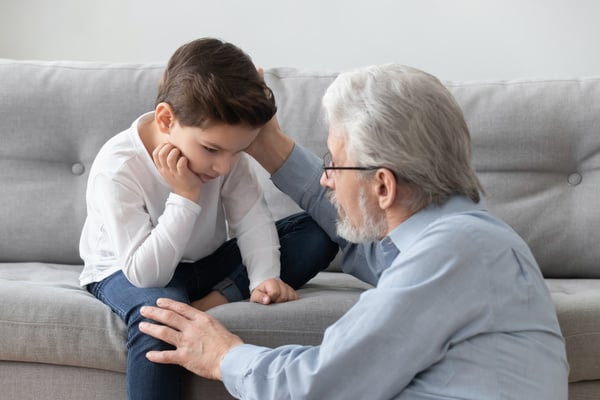Three Ways To Help Children Deal With Grief

Children’s Grief Awareness Day, as observed every year on the third Thursday in November, is an annual reminder that grieving is as real for children as it is for adults. Many adults often think that children are insulated from sadness more than adults, as such children often feel alone and misunderstood when there is a loss of a loved one. Family members and close friends should learn to recognize signs of stress in children so they can offer a listening ear and help children deal with grief.
A child who has lost a parent, sibling, close relative, or even a pet, can feel a deep sense of loss that they do not fully understand. While we all grieve, children don’t often have coping strategies and need extra support and encouragement to go through the grief. A clear explanation is helpful for young children who sometimes think that a loved one died because they did something wrong, causing unnecessary guilt and anxiety. Older children may understand the permanence of death but they still need reassurance and support to help manage their feelings.
Have an Honest Discussion
Adults often think that we have to shield children from the topic of death. In fact, children are resilient and they can discern times when we are hiding information from them. Be truthful and direct; don’t avoid mentioning the fact that someone has died, for example by not saying their name or removing their personal items from the household. Such actions could signify that you think the deceased person is no longer important when their memory is still very much alive in the child’s mind.
Share Memories
Grief is a journey, and it can take months or even years to come to terms with grief. The sense of loss may never go away but with time it will lose its edge. Children should be encouraged to remember the deceased by sharing special stories or memorable conversations as often as possible. Many families hold memorial services during the holidays or on significant anniversaries to honor and remember their loved ones. Remembering the departed together also brings you closer to the child.
Encourage Emotions
Let your child know that there is nothing shameful about expressing grief through showing sadness, anger, frustration, depression, etc. Expressing strong emotions is a method of coping with loss and coming to terms with unexpected life events. Don’t be afraid to let them see you grieving as well. It helps bereaved children process their grief properly when they know that it is okay to be vulnerable and it also encourages them to share their grief with you. This will bring you closer to them as well.
We Are Here to Help
At American Heritage Cemetery & Funeral Home, we understand that it is important to have the time and space for grieving and healing. We ensure that the process of putting your loved ones to rest runs smoothly so that you can concentrate on what matters. Please feel free to contact us to learn more about our professional services.

